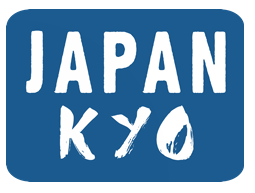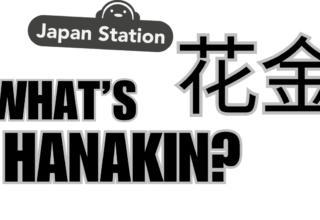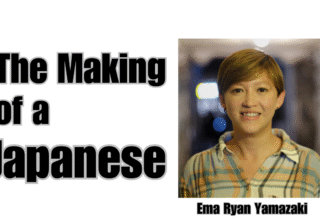
On this episode of Ichimon Japan we ask: How do Japanese names work?
Topics Discussed
- How people in Japan normally state their family name before their given name
- The complicated history of naming practices in Japan
- Commoners being prohibited from using family names during the Edo Period
- The Meiji era laws that mandated every Japanese person take a family name
- The reluctance of some people to take a family name during the Meiji Period
- The fact that many (most?) people with the surname Satō (佐藤) are probably not descended from samurai
- The fact that many commoners were given last names based on the geographical features of the area in which they lived
- The story of how the Furo (風呂) family supposedly got their family name from Minamoto no Yoshitsune
- The most common family names in Japan in 2019
- How many Japanese family names there are
- The prevalence of rare Japanese last names
- The regional nature of some Japanese family names
- The convention of naming boys based on their birth order
- How it’s easy to forget people’s first names in Japan
- Some of the factors people in Japan consider when naming a baby
- Asking people in Japan about the kanji they use for their given name as a way to spark conversation
- The phenomenon of siblings having related names
- Interesting names in anime
- The practice of picking a baby name based on the way a name is written
- How much it usually costs to have a shrine pick a baby name for you
- What a seimeihandanshi is
- What it might cost you to have a seimeihandanshi pick a baby name for you
- A list outlining the most popular baby names in Japan of 2019
- The Japanese naming convention of tōriji
- How shorter names have become common in Japan in recent years
- How female names that end in -ko used to be more common
- And much more!
Note: Just for the sake of clarity, I’d like to point out that the story of the Furo family name did not occur during the Meiji Period (actually it probably never even occurred in the way it is normally told). However, because the story was introduced alongside the changes of the Meiji Period it’s possible to be left with the impression that there was a connection there. There is no direct connection. The story was simply brought up as an example of the many interesting ways in which people in Japan acquired last names.
Listen to Ichimon Japan on
Apple Podcasts Google Podcasts Stitcher Spotify iHeartRadio PodBean Tunein RSS
Support on Patreon
If you enjoy Ichimon Japan and want to ensure that we’re able to produce more episodes, then please consider becoming a patron on Patreon.com. You can join for just $1 a month and that comes with perks like early access to episodes, a shout-out at the beginning of a future episode, bonus content, and discounts to Kimito Designs. For $3 a month you get all that plus access to Japanese Plus Alpha, a podcast produced by me (Tony Vega) that focuses on the Japanese language and its many quirks. Whether you are studying Japanese or just enjoy learning about language and linguistics, you’ll enjoy Japanese Plus Alpha.
And it goes without saying that if you sign up, you’ll also get my undying gratitude. Thanks in advance!
Sources, Links, Videos, Etc.
Here are some of the main Japanese-language sources that were used when doing the research for this episode.
- 全国名字ランキング
- 【名字】風呂
- 実在する珍しい名字 (5)
- 通字と偏諱
- 日本人の苗字はこうしてつけられた 【CGS 日本の歴史 5-9】
- NHKネーミングバラエティー日本人のおなまえっ 日本一短い名字「井」
- 名付けを神社にお願いするには?方法や金額相場や初穂料について解説
- 名付けはどうやって決めた?先輩ママに聞いてみよう
- 赤ちゃんの名付け!気をつけるポイントと名付け方法
- 神社での命名にかかる料金はどれぐらい?手順や注意点を解説します!
Here are some of the main English-language sources used when doing the research for this episode.
- A Long History of Japanese Names
- This is the Tofugu article mentioned during this episode.
- The Japanese Naming System – Morphology and Semantics of Individual Names by Anja Collazo
- This is the thesis mentioned during this episode.
- Japan’s Name Culture: The Significance of Names in a Religious, Political, and Social Context by Herbert Plutschow
Here are the Ichimon Japan episodes mentioned during this episode.
- Why are school rules in Japan so strict? (All About Kōsoku) | Ichimon Japan 23
- What is seppuku? (The Basics of Samurai “Suicide”) | Ichimon Japan18
Here is the latest episode of Japan Station.
If you would like to check out the Kimito Designs shop, then use the link below. Remember to use the coupon code OPENING10 when you check out to get 10% off (valid until the end of 2020).
Japanese Vocabulary List
Most episodes feature at least one or two interesting Japanese words or phrases. Here’s some of the ones that came up on this episode. All information is from Jim Breen’s WWWJDIC.
- Myōji
- 苗字 : 苗字(P); 名字(P) 【みょうじ】 (n) (See 名前・2) surname; family name
- Namae
- 名前 : 名前(P); 名まえ 【なまえ】 (n) (1) name; (n) (2) (See 名字) given name; first name;
- Furo
- 風呂 【ふろ】 (n) (1) (See お風呂) bath; bathing; bathtub; bathroom; (n) (2) bathhouse; public bath
- Kenkō
- 健康 【けんこう】 (n) (1) health; (adj-na) (2) healthy; sound; fit; wholesome
- Futoi
- 太い 【ふとい】 (adj-i) (1) fat; thick; (adj-i) (2) deep (of a voice); thick; sonorous; (adj-i) (3) daring; shameless; brazen; audacious
- Seimeihandan
- 姓名判断 【せいめいはんだん】 (n) (yoji) fortunetelling based on writing or pronunciation of one’s name
- Iemoto
- 家元 【いえもと】 (n) head of a school (of music, dance); head family of a school
- Himawari
- ひまわり (n) sunflower (Helianthus annuus)
- Tsumugi
- 紬 : 紬; 紡ぎ 【つむぎ】 (n) pongee; soft thin cloth woven from raw silk
- Tsumugu
- 紡ぐ 【つむぐ】 ; (v5g,vt) (1) to spin; to make yarn; (v5g,vt) (2) to spin (a tale); to assemble (e.g. words); to put together
- Kotoba o tsumugu
- 言葉を紡ぐ : 言葉を紡ぐ; 言葉をつむぐ 【ことばをつむぐ】 (exp,v5g) (poet) to express in a refined fashion; to weave a web of words
- Wa
- 和 : 和(P); 倭 【わ】 (n) (1) (和 only) {math} sum; (n) (2) (和 only) harmony; peace; (n,n-pref,adj-no) (3) Japan; Japanese-style
We Want Your Questions
Is there something about Japan that confuses you? Is there something about Japanese culture that you would like to learn more about? Is there something in Japanese history that you would like us to explain? We’re always looking for new questions about Japan to answer, so if you have one, please send it to ichimon@japankyo.com.
Special Thanks
Opening/Closing Theme: Produced by Apol (YouTube, Twitter, Facebook, Fiverr)
Ichimon Japan cover art: Produced by Erik R.
Follow Japankyo on Social Media
Full Show Notes

















